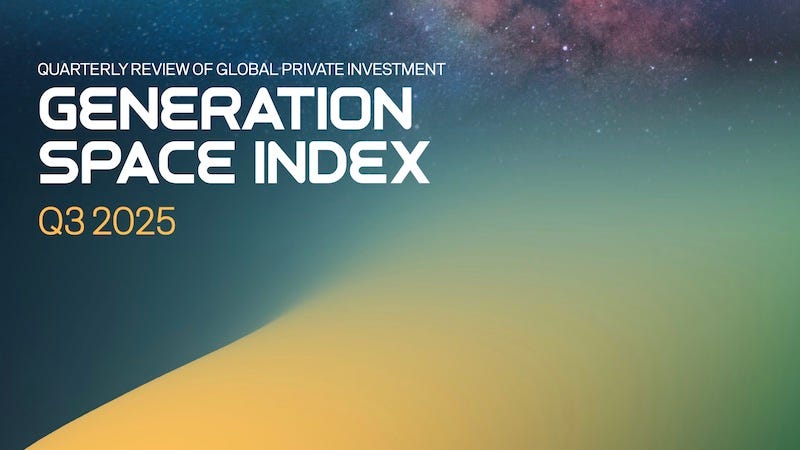Space Investment Hits Record $3.5 Billion in Third Quarter: Report
Hardware-Focused Startups Drive Global Funding to Near All-Time High as Industry Rebounds from 2022 Pullback
Private investment in space technology companies reached a record $3.5 billion in the third quarter of 2025, marking a sustained rebound in an industry that has matured beyond a handful of mega-rounds to a broader base of hardware-focused scale-ups, according to a quarterly report by Generation Space, the U.S. division of Seraphim Space Group.
The third-…




